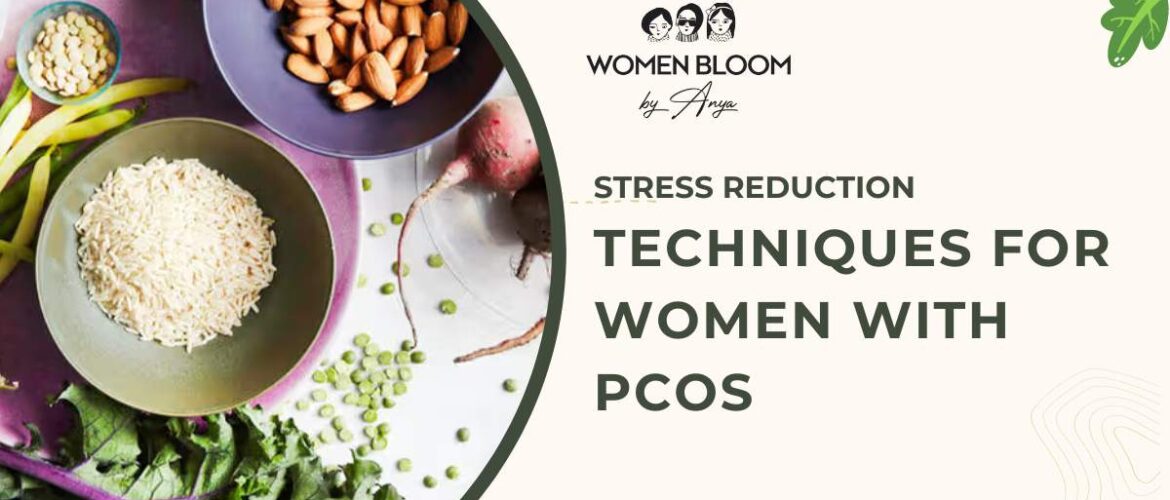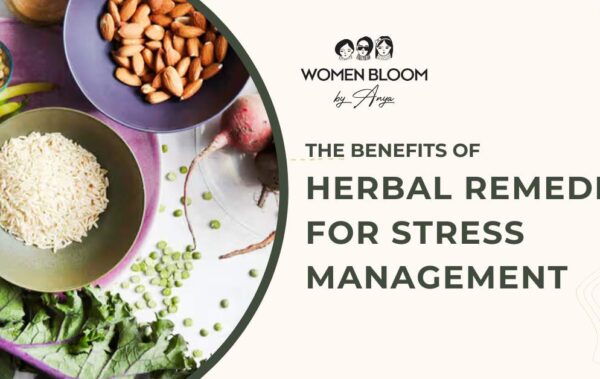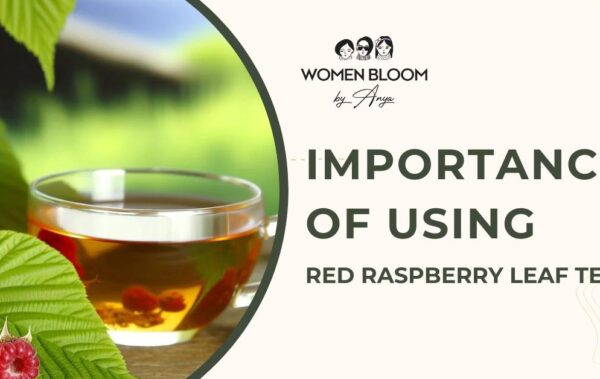It can be difficult to live with Polycystic Ovary Syndrome (PCOS), both physically and emotionally. Stress can worsen diseases including hormonal imbalance, weight gain, and irregular menstrual periods.
Stress is also a typical trigger for PCOS symptoms. Your quality of life can be greatly enhanced by including stress-reduction and mindfulness practices into your everyday routine.
This article will guide you the most effective techniques for managing stress in PCOS.
The connection between PCOS and Stress:
Stress has been shown to have a detrimental effect on PCOS symptoms. Excessive amounts of stress can exacerbate symptoms like acne, hair loss, and irregular menstruation by increasing the synthesis of androgens. The first step to better controlling PCOS is realizing this link.
Stress reducing techniques for PCOS women:
Don’t take stress:
Stress can exacerbate PCOS symptoms by increasing inflammatory reactions and creating hormone abnormalities. Applying stress-reduction techniques can enhance your wellbeing. At home, try the following:
- Practice deep breathing, yoga, meditation, or other relaxation techniques.
- Take up fun and stress-relieving activities, such as walking outside, reading, or listening to music.
- Prioritize self-care and set aside time for activities that will restore and revitalize you.
Maintain healthy sleep cycle:
It has to be mentioned, even though you’ve undoubtedly heard it before: getting adequate sleep is essential for overall wellness. Every expert we spoke with said that getting seven or eight hours of sleep per night is recommended.
It can be difficult to get that kind of quality sleep when you are stressed, worried, or suffering from insomnia. Try breathing exercises, turn off all electronics an hour or more before bed, invest in quality bedding, and keep your room cool to help you reach this level of relaxation.
Boost your iron intake:
Some women with PCOS experience heavy bleeding during their menstrual cycle. This could lead to an iron deficiency or anemia. If you have been diagnosed with either condition, talk to your doctor about ways to boost your iron consumption. They could suggest that you eat more iron-rich foods like eggs, spinach, and broccoli.
Consider anti-inflammatory products:
Aim for low-level chronic inflammation, or anti-inflammatory PCOS, as one study called it (Trusted Source). You can lessen your discomfort by including foods high in anti-inflammatory properties in your diet.
One option to consider is the Mediterranean diet. Tomatoes, olive oil, leafy greens, fatty fish (such mackerel and tuna), and tree nuts all help fight inflammation.
Use herbal teas:
A potent combination of herbs and adaptogens, herbal teas can aid in the treatment of infertility, irregular periods, hormonal acne, cramping during periods, and weight gain.
You can make use of Women Bloom’s herbal teas. You can utilize the Herbal teas by Women Bloom. The products contain the right amount of each herb and some roasted ones.
Each herb is present in the items in the proper amounts, along with some roasted ones.
These organic teas are imported from the UK and are also beneficial for endometriosis, PMS, insulin resistance, hair loss, hormone imbalances, premenopause, poor flow, and diminished libido.
Seed cycling for stress management:
Seed cycling is a naturopathic treatment that seeks to balance hormones by regulating the hormones progesterone in the second half of your menstrual cycle and estrogen in the first. It does this by helping the body balance hormones, which reduces PCOS symptoms.You may crush up the seeds and add them to smoothies, yoghurt, salads, and porridge. You can also eat the seeds raw in slightly warm water.
- Day 1–14: It is recommended to take one tablespoon of flax and pumpkin seeds with breakfast.
- Day 15–28: Eat breakfast with one tablespoon of sesame and sunflower seeds, respectively.
The highly suggested seed cycling product is Seed cycling kit
The particular emphasis of this seed cycling mix kit is the issues associated with hormonal imbalance in the body.
Light but long exercise:
There are so many advantages to movement. Exercise has been shown to be beneficial in treating PCOS (those with PCOS are expected to benefit most from 120 minutes per week of moderate-to-vigorous level exercise), and it also helps to reduce stress.
It’s best to stick to mild, restorative exercise regimens; attempting a vigorous workout when your body is already under stress won’t likely help.
Alternatively, consider doing some relaxing pilates or yoga, or take a long stroll outside. Research has shown that spending time in nature also helps to relieve stress.
Try to get at least 150 minutes a week of moderate-intensity aerobic exercise, such as swimming, cycling, or brisk walking.
Stress buster tea:
This calming tea mix is perfect for falling asleep since it helps reduce tension and anxiety.Stress Buster Tea improves mood and has the potential to reduce anxiety and sadness. can enhance focus and potentially aid with weight control.
Made with top-grade herbs, our stress buster tea naturally lowers tension, encourages sleep, improves digestion, and has a relaxing impact on both the body and the mind.
Consider your mental health:
Taking care of your mental health is just as important for managing PCOS symptoms as treating its physical manifestations.
By practicing stress-reduction and mindfulness, you can enhance your general wellbeing and better manage the symptoms of PCOS.
- Meditation: Frequent meditation will help lower stress levels, which will alleviate PCOS symptoms and reduce the production of androgen.
- Deep Breathing practice: By reducing stress levels right away, deep breathing may enhance both your physical and emotional well-being.
- Yoga: Yoga is a great technique for reducing stress and balancing hormones because it incorporates physical positions with breathwork and meditation.
Try not to be too hard on yourself. It takes a journey to manage stress, particularly when PCOS is involved.
Remember that every little step forward is progress, and celebrate your victories no matter how big.
Foods that trigger stress in PCOS:
People with PCOS should avoid the following foods since they may promote inflammation:
- Foods that have been fried, such as French fries, potato chips, corn chips, and fried chicken or fish.
- Saturated fats include things like margarine and butter.
- Red meat is found in hamburgers, hot dogs, roast beef, and packed luncheon meat.
- processed foods include candy, pies, cakes, and cookies
- prepared cereals high in sugar, like granola and quick oatmeal
- Sugar-filled beverages, like sodas, teas, and sports drinks
- alcoholic beverages
- Rolls, white bread, pasta, pizza crust, and refined flour
- White rice
You may incorporate whole foods in your diet, such as whole grains, legumes, fruits, and vegetables.
Without hormones and preservatives, your body’s endocrine system can regulate blood sugar levels more successfully.
Your hormone levels and energy level are influenced by both protein and carbs. Eating protein stimulates your body to produce more insulin. high-carbohydrate
Women with PCOS need to eat more natural foods and reduce their intake of processed foods, sugar, and caffeine.
Final words:
To help women cope with stress and anxiety, they might commence practicing meditation and yoga. Eat healthy and natural foods. Maintain consistency throughout all tasks.
Following all of our stress-management tactics, ladies with PCOS will see an increase in their energy and mood within a few weeks.
They’ll begin to feel more in control of their bodies and balance.
Their periods will become more regular, and they will begin to lose weight naturally. All of these positive improvements in a PCOS-suffering woman’s body will keep her motivated to continue the tactics indicated above, and her stress level will naturally decrease as her hormones begin to balance. Remember, PCOS is a lifelong struggle that cannot be cured, but can only be managed by lifestyle modifications.







